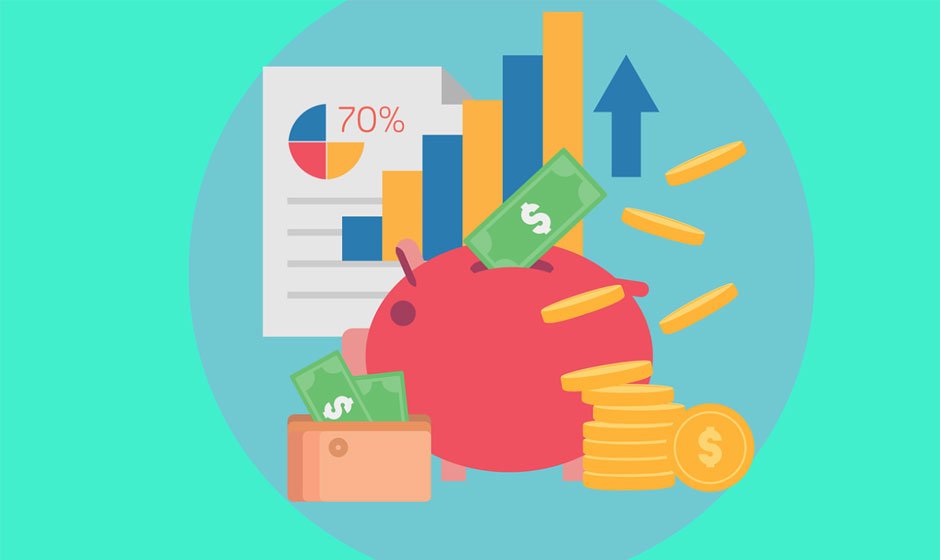Savings accounts are an indispensable money management asset that everyone should possess, as they offer safe storage of funds while earning interest over time. Though there are other forms of investment out there, savings accounts remain one of the most reliable methods of handling personal finances.
However, there’s still much to learn about savings accounts and managing personal finance, as numbers show that a staggering 60% of Canadians have more debt than savings.
As you set aside money for different needs like emergencies, big purchases, or financial stability in the future, it’s important to know that a savings account can bring various advantages.
Keep reading to learn why it matters to have a savings account and the role such an account plays in your overall financial well-being.
Finding the Best Savings Account Rates
Finding the most advantageous savings account rates to maximize earnings is of paramount importance when opening a savings account, especially if you’re living in Canada, where rates may differ widely between financial institutions. By comparing rates and terms, it becomes easier to find best savings account rates that offer the maximum return on deposits.
For example, establishing a high-interest savings account is an effective way of saving money, providing a safe place for funds to grow with competitive interest rates and increasing financial returns.
Financial institutions provide an opportunity for savings with good rates and extra incentives to improve the experience. If you do some research properly, taking into account interest rates, fees, and how easy it is to access accounts, you can ensure you have made the right choice to benefit your financial goals.
Additionally, exploring credit card options like the Wells Fargo Autograph Journey Card can offer extra perks such as rewards and travel benefits. This combination of savings and smart credit use can enhance your overall financial strategy.
Building an Emergency Fund
For a lot of people, the main reason for having a savings account is to create an emergency fund. Life can be very unpredictable, and you may face unexpected costs at any moment. It could be a sudden health crisis, a car emergency, or a job termination. Having some money set aside will assist in managing these situations without falling into debt.
Normally, professionals in finance suggest that you should save an amount equal to three to six months’ living expenses for emergencies. A savings account is a perfect choice for establishing such a fund because it keeps your money safe and easy to access while also earning interest on it, offering some peace of mind and stability during periods of unpredictability.
Encouraging Financial Discipline
Keeping a savings account promotes financial self-control by encouraging frequent saving efforts. When you agree to put in a certain sum of money every month, you create the custom of saving before spending. This can enhance your general handling of finances and assist in setting priorities for your financial objectives.
Also, a savings account helps keep your savings separate from the money you use regularly. This separation can lower the temptation to spend your savings on things that are not necessary. An ongoing practice of this self-control may lead to improved financial steadiness and capability to manage upcoming financial difficulties better.
Achieving Long-Term Financial Security
Holding money in a savings account is like building a strong financial wall for your future. When you save regularly, it adds up and becomes an important reserve that can help you meet your needs and goals later on in life. For example, if you have plans for retirement or want to ensure funds for your kids’ education, having a savings account can provide stability in such long-term endeavors.
In essence, savings accounts provide a place for you to store your money and earn interest. As time passes, this interest can grow from both the money you initially put in and any other interest earned. Savings accounts typically deliver extra features like automatic transfers or setting goals, which help in keeping up with your financial plans. These methods allow for a steady collection of savings that assist you in being ready for different life events and unexpected occurrences.

Final Words
To sum up, a savings account is an important part of good money management. It gives you a secure and convenient solution for keeping your funds while also earning interest on them. Having a savings account assists with creating an emergency reserve, saving for substantial purchases, promoting monetary control, and attaining lasting financial safety. Additionally, it’s very important to locate the best savings account rates available.
When you focus on saving money and choosing wisely, this can help secure a stable and successful financial future. If possible, start saving now to enjoy the stability and monetary expansion that come with having a dedicated savings account for your financial needs.





